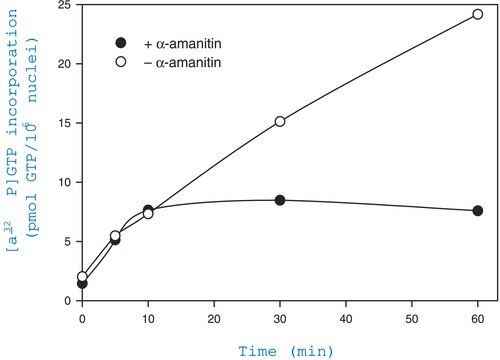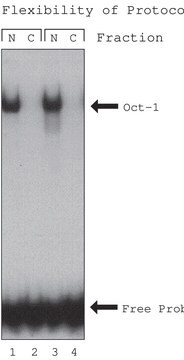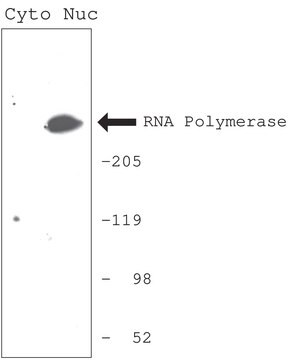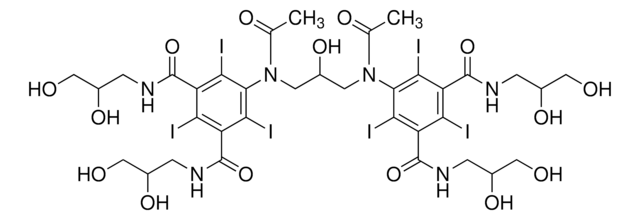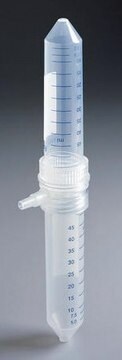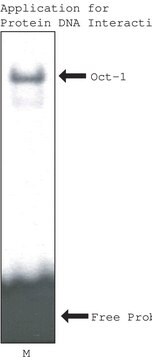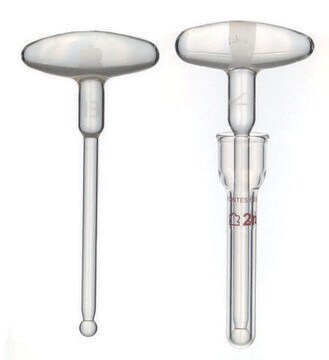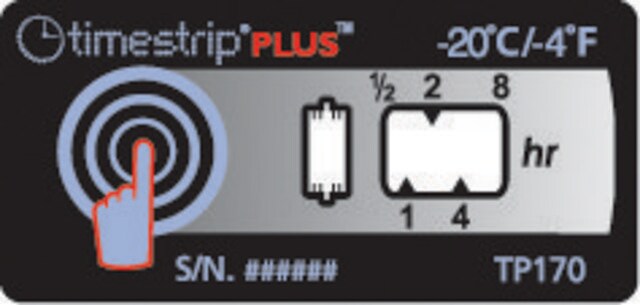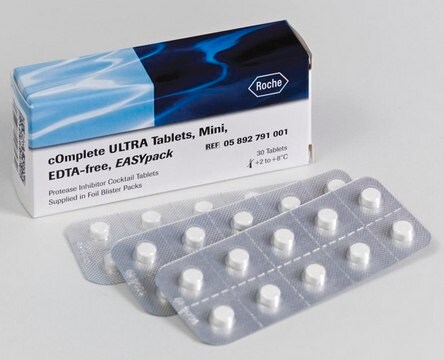2900
Nuclear Extraction Kit
Synonim(y):
Nuclear Isolation Kit
Zaloguj sięWyświetlanie cen organizacyjnych i kontraktowych
About This Item
Kod UNSPSC:
41116012
eCl@ss:
32160405
Polecane produkty
producent / nazwa handlowa
Chemicon®
metody
protein extraction: suitable
Zastosowanie
sample preparation
Warunki transportu
dry ice
Zastosowanie
CHEMICON′s Nuclear Extraction Kit (Catalog No. 2900) provides a simple and convenient method for the isolation of cytoplasmic and nuclear samples from mammalian cell culture or tissue samples. The Nuclear Extraction Kit can be used in the preparation of purified proteins for use in Western blotting, Electrophoretic Mobility Shift Assays (EMSA), and in CHEMICON′s Transcription Factor Assay product line.
For Research Use Only; Not for use in diagnostic procedures.
For Research Use Only; Not for use in diagnostic procedures.
Research Category
All
All
Komponenty
Cytoplasmic Lysis Buffer, 10x: - (Part No. 90497) One vial containing 10mL of a concentrated lysis buffer. Dilute to a 1x in deionized water.
Nuclear Extraction Buffer: - (Part No. 90498) One vial containing 50mL of a 1x nuclear extraction buffer.
PBS Packets: - (Part No. 60093) Two pouches containing enough dry reagent to prepare 1 liter of a 1x PBS solution per pouch. Dilute packet in deionized water.
DTT, 1M: - (Part No. 90499) One vial containing 100 μL of 1M Dithiothreitol. Prior to use, dilute to a final concentration of 0.5mM (1:2000) in 1x Cytoplasmic Lysis Buffer and 1x Nuclear Extraction Buffer.
Protease Inhibitor Cocktail: - (Part No. 90492) One vial containing 100μL of protease inhibitors in DMSO for use with mammalian cell and tissue extract buffers. A mixture of protease inhibitors with broad specificity for the inhibition of serine, cysteine and aspartic acid proteases and aminopeptidases. Contains 4-(2-aminoethyl)benzenesulfonyl fluoride (AEBSF), pepstatin A, E-64, bestatin, leupeptin, and aprotinin. Contains no metal chelators (e.g. EDTA, EGTA). Prior to use, dilute 1/1000 in 1x Cytoplasmic Lysis Buffer and 1x Nuclear Extraction Buffer.
Detergent, 10%: - (Part No. 90500) One vial containing 3mL of 10% IGEPAL CA-630 (detergent). Cytoplasmic Lysis Buffer and Nuclear Extraction Buffer already contain detergent, however, under certain conditions, more detergent may be required - refer to Extraction Procedure.
Nuclear Extraction Buffer: - (Part No. 90498) One vial containing 50mL of a 1x nuclear extraction buffer.
PBS Packets: - (Part No. 60093) Two pouches containing enough dry reagent to prepare 1 liter of a 1x PBS solution per pouch. Dilute packet in deionized water.
DTT, 1M: - (Part No. 90499) One vial containing 100 μL of 1M Dithiothreitol. Prior to use, dilute to a final concentration of 0.5mM (1:2000) in 1x Cytoplasmic Lysis Buffer and 1x Nuclear Extraction Buffer.
Protease Inhibitor Cocktail: - (Part No. 90492) One vial containing 100μL of protease inhibitors in DMSO for use with mammalian cell and tissue extract buffers. A mixture of protease inhibitors with broad specificity for the inhibition of serine, cysteine and aspartic acid proteases and aminopeptidases. Contains 4-(2-aminoethyl)benzenesulfonyl fluoride (AEBSF), pepstatin A, E-64, bestatin, leupeptin, and aprotinin. Contains no metal chelators (e.g. EDTA, EGTA). Prior to use, dilute 1/1000 in 1x Cytoplasmic Lysis Buffer and 1x Nuclear Extraction Buffer.
Detergent, 10%: - (Part No. 90500) One vial containing 3mL of 10% IGEPAL CA-630 (detergent). Cytoplasmic Lysis Buffer and Nuclear Extraction Buffer already contain detergent, however, under certain conditions, more detergent may be required - refer to Extraction Procedure.
Przechowywanie i stabilność
The Nuclear Extraction Kit is shipped and stored at -20ºC.
·Cytoplasmic Lysis Buffer (10x), Nuclear Extraction Buffer (1x), 10% Detergent, and the PBS Packets can be stored at 2-8ºC.
·DTT, 1M and Protease Inhibitor Cocktail must be stored at -20ºC. Avoid repeated freeze-thaw cycles.
·Cytoplasmic Lysis Buffer (10x), Nuclear Extraction Buffer (1x), 10% Detergent, and the PBS Packets can be stored at 2-8ºC.
·DTT, 1M and Protease Inhibitor Cocktail must be stored at -20ºC. Avoid repeated freeze-thaw cycles.
Informacje prawne
CHEMICON is a registered trademark of Merck KGaA, Darmstadt, Germany
Oświadczenie o zrzeczeniu się odpowiedzialności
Unless otherwise stated in our catalog or other company documentation accompanying the product(s), our products are intended for research use only and are not to be used for any other purpose, which includes but is not limited to, unauthorized commercial uses, in vitro diagnostic uses, ex vivo or in vivo therapeutic uses or any type of consumption or application to humans or animals.
This page may contain text that has been machine translated.
Hasło ostrzegawcze
Danger
Zwroty wskazujące rodzaj zagrożenia
Zwroty wskazujące środki ostrożności
Klasyfikacja zagrożeń
Aquatic Chronic 3 - Eye Dam. 1 - Skin Irrit. 2
Kod klasy składowania
10-13 - German Storage Class 10 to 13
Klasa zagrożenia wodnego (WGK)
WGK 3
Certyfikaty analizy (CoA)
Poszukaj Certyfikaty analizy (CoA), wpisując numer partii/serii produktów. Numery serii i partii można znaleźć na etykiecie produktu po słowach „seria” lub „partia”.
Masz już ten produkt?
Dokumenty związane z niedawno zakupionymi produktami zostały zamieszczone w Bibliotece dokumentów.
Klienci oglądali również te produkty
Alejandro López-Saavedra et al.
Cell cycle (Georgetown, Tex.), 15(15), 2066-2076 (2016-06-18)
Prolonged mitotic arrest in response to anti-cancer chemotherapeutics, such as DNA-damaging agents, induces apoptosis, mitotic catastrophe, and senescence. Disruptions in mitotic checkpoints contribute resistance to DNA-damaging agents in cancer. MAD2 has been associated with checkpoint failure and chemotherapy response. In
Raman Saggu et al.
Acta neuropathologica communications, 4(1), 76-76 (2016-08-05)
Vascular cognitive impairment is the second most common form of dementia. The pathogenic pathways leading to vascular cognitive impairment remain unclear but clinical and experimental data have shown that chronic reactive astrogliosis occurs within white matter lesions, indicating that a
Mélanie Petitjean et al.
Langmuir : the ACS journal of surfaces and colloids, 26(12), 9596-9606 (2010-03-25)
Adsorption study of benzaldehyde on ice surfaces is performed by combining experimental and theoretical approaches. The experiments are conducted over the temperature range 233-253 K using a coated wall flow tube coupled to a mass spectrometric detector. Besides the experimental
Wei Jiang et al.
Neoplasia (New York, N.Y.), 10(3), 235-243 (2008-03-06)
FK506 binding protein 5 (FKBP5) belongs to a family of immunophilins named for their ability to bind immunosuppressive drugs, also known as peptidyl-prolyl cis-trans isomerases, and also with chaperones to help protein folding. Using glioma cDNA microarray analysis, we found
M Fuchs-Mettler et al.
European journal of biochemistry, 108(2), 527-534 (1980-07-01)
Human faecal specimens were incubated under anaerobic conditions with several dideuterated tyrosine metabolites. 3-(4-Hydroxy[3,5-2H2]phenyl)propionic acid and 3-(4-hydroxy[3,5-2H2]phenyl)lactic acid yielded the rearrangment product 3-(3-hydroxy[2,4-2H2]phenyl)propionic acid. The starting materials as well as the product all contained two deuterium atoms both ortho to
Nasz zespół naukowców ma doświadczenie we wszystkich obszarach badań, w tym w naukach przyrodniczych, materiałoznawstwie, syntezie chemicznej, chromatografii, analityce i wielu innych dziedzinach.
Skontaktuj się z zespołem ds. pomocy technicznej